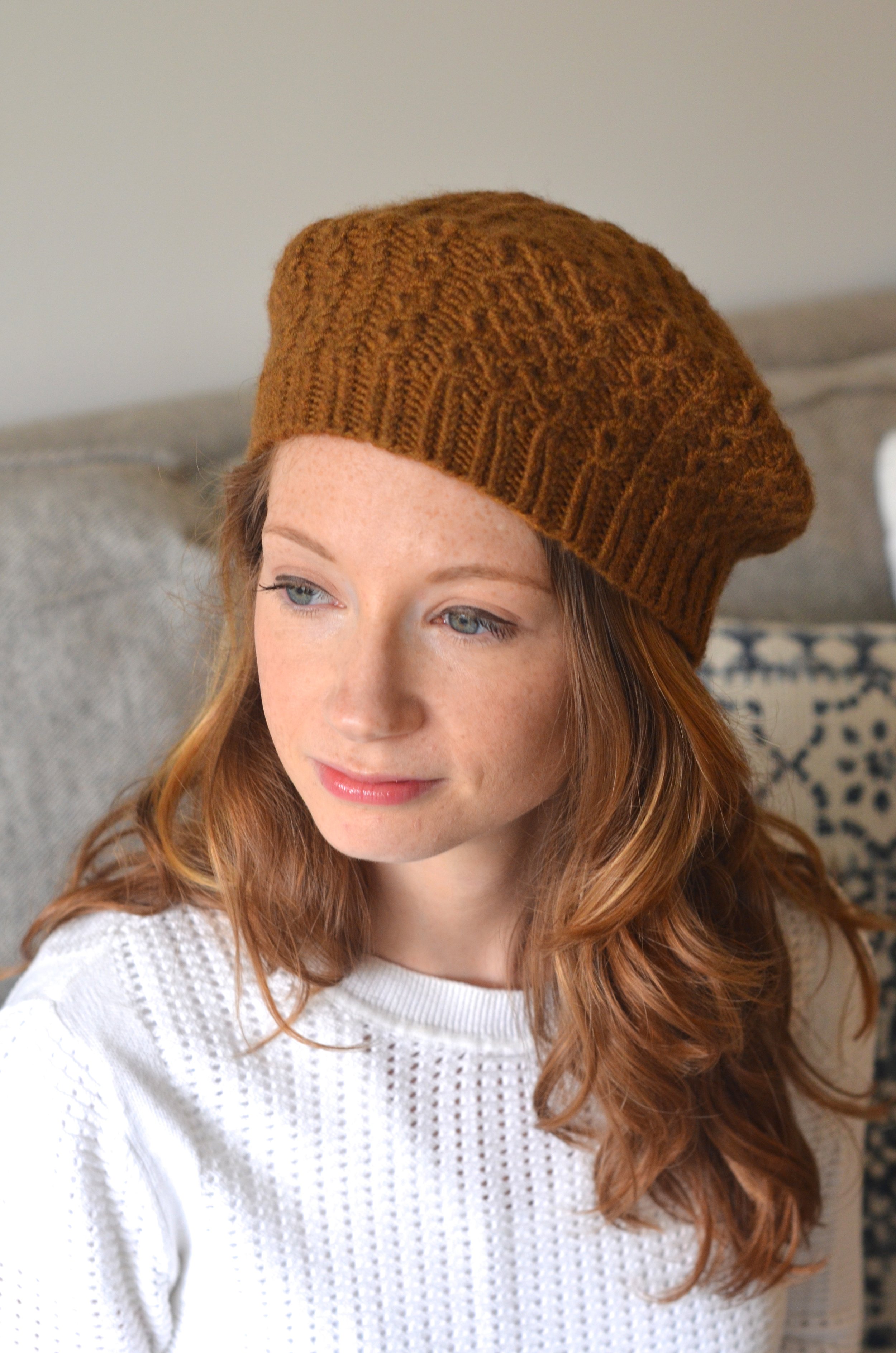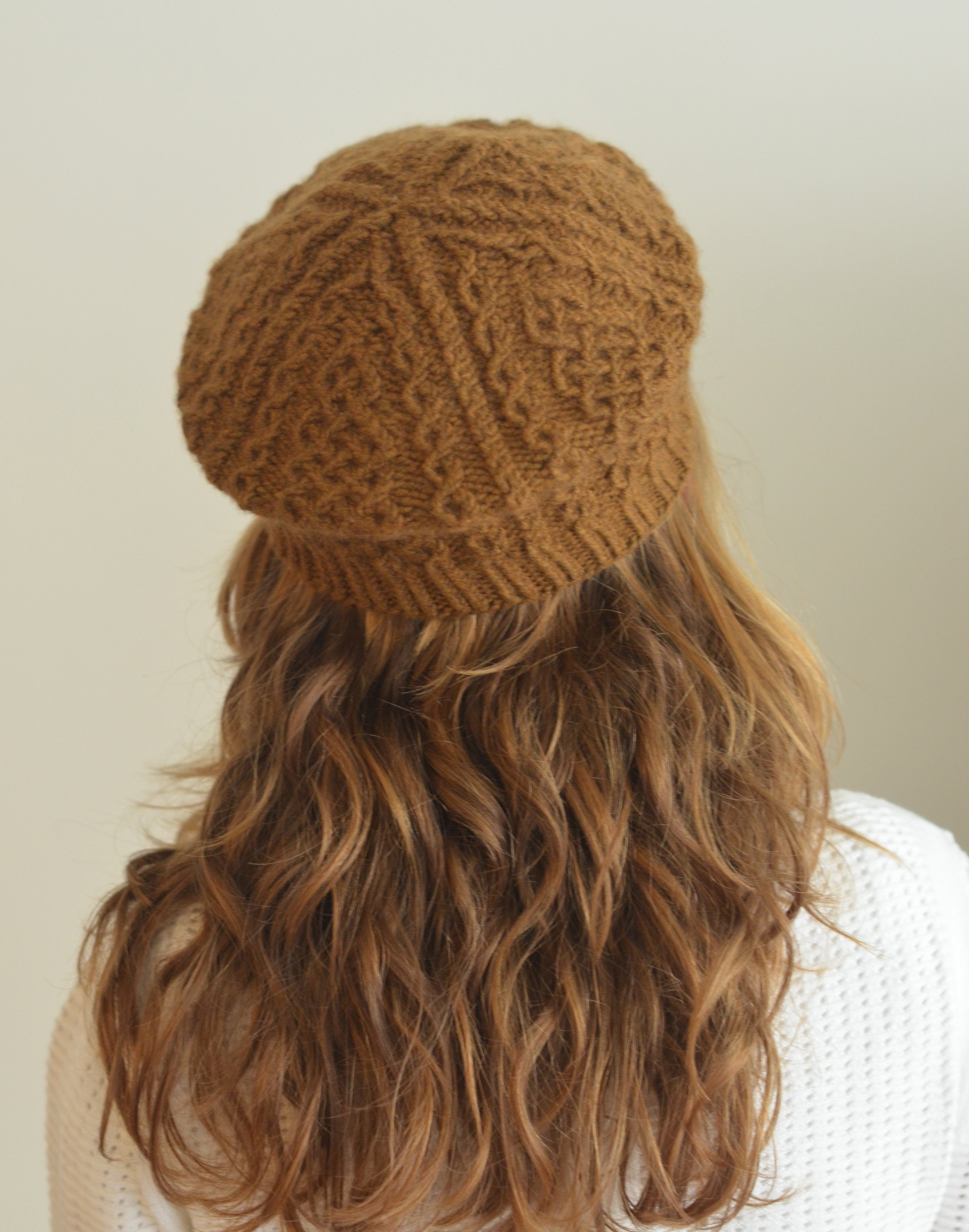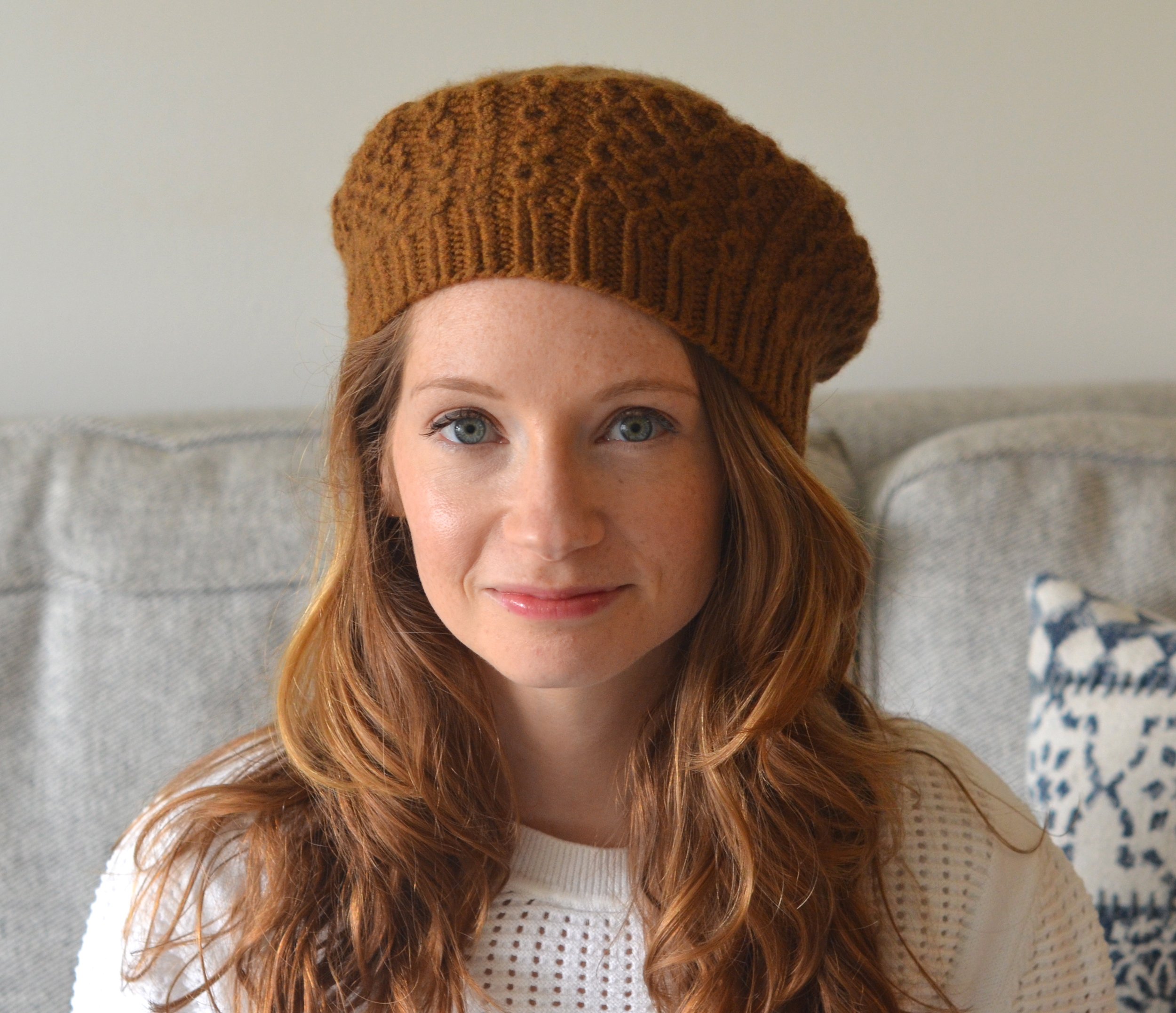New Pattern: The Dalmayr Hat
This hat has been a long time coming. It's something I started ages ago as a little side indulgence for myself, then eventually became the seed for a teaching pattern for my Bavarian Twisted Stitch Knitting classes. In class, we learn the technique on a cowl so that we don't have to be worried about gauge or shaping, but I wanted to have a next-step project for anyone who finds themselves smitten with those Bavarian stitches.
Bavarian cables are small, nimble and light on their feet and a hat crown is an ideal place to show off their ability to wend their way towards a decrease point.
Bavarian Knitting can look entirely different depending on the yarn used. This version knit with Brooklyn Tweed Shelter really lives up to the yarn's name; it practically stands up by itself like a little house. The sponginess of the woolen spun yarn makes for a truly lovely knitting experience and the toothiness of the wool means that the stitches stand up and wait for you as you are cabling. With a woolen spun yarn, what you may lose in stitch clarity you more than make up for with sculptural qualities. I love how the stitches look carved from stone.
This brown version is knit with Woolfolk Tov and is blocked as a tam. Tov's high twist and multiple plies (12 in all) combined with the crimp and softness of the merino make for a shimmering surface and crisp stitch definition, but more drape than the version made with Brooklyn Tweed Shelter. Both lovely, but entirely different.
Once you get into the rhythmn of Bavarian Twisted Stitch patterns, they have a bouncy, acrobatic lilt all their own, like a miniature ballet on your needle tips, and it makes for some of the most addictive and ultimately satisfying knitting out there. Hope you enjoy!
PATTERN INFO
Find the pattern here
Dalmayr is worked in the round from brim to crown. It features panels of Bavarian Twisted Stitch cables and the crown shaping is integrated into the patterning. Hat can be blocked as either a beanie or a tam. This hat can be worked to great affect in a variety of yarns, but something with a high percentage of wool and good elasticity will work best. Choose a smooth, worsted spun yarn for superb stitch definition or a lofty, woolen-spun yarn for three-dimensionality and exceptional lightness.
YARN
Approximately 180 yards of worsted weight yarn
Brown sample used 1 skein Woolfolk Tov (100% Extra Fine Ovis Ultimate Merino; 173 yards/100g). Photographed in color 04, size Small.
Gray sample used 2 skeins Brooklyn Tweed Shelter (100% US Targhee-Columbia Wool; 140 yards/50g). Photographed in color Sweatshirt, size Medium/Large.
NEEDLES
Main Fabric Needle: One 16" circular and one set of double-pointed needles (DPNs) in size needed to obtain gauge
Suggested size: US 7 (4.5 mm)
Ribbing Needle: One 16" circular in size two sizes smaller than main fabric needle
Suggested size: US 5 (3.75 mm)
Adjust needle size if necessary to obtain correct gauge
GAUGE
26 stitches and 27 rounds = 4" in twisted stitch pattern, in the round
26-stitch Twisted Cable chart measures 4” wide, after blocking
Fabric is extremely stretchy and can be stretched to greater width if desired though the motifs will appear is lower relief.
TOOLS
Blunt tapestry needle, stitch markers, cable needle
FINISHED DIMENSIONS (after blocking): Small (Medium/Large)
Brim circumference (unstretched): 19"
Length: 7 ¾ (8 ½)"
Fabric is very stretchy and will fit a range of head sizes. For a larger hat, knit both the ribbing and main hat on a size larger needle than indicated.






